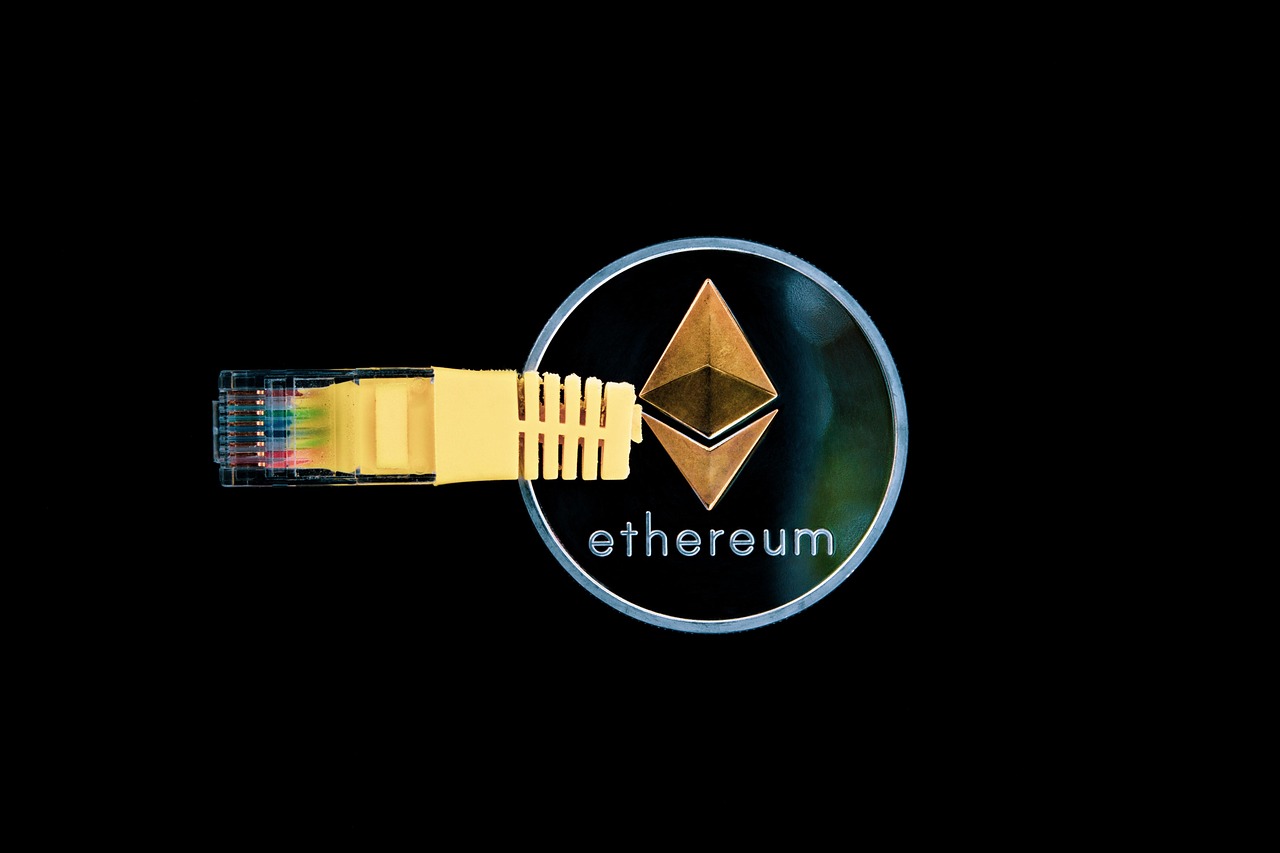Future Fortunes: Industries Blockchain Is About to Revolutionize (and How to Invest)
The future of investing is on the cusp of a revolutionary transformation, driven by the relentless march of blockchain technology. This digital ledger system, known for its role in cryptocurrencies, is poised to disrupt a myriad of industries, offering unprecedented transparency, efficiency, and security. As traditional investment paradigms evolve, understanding which sectors are primed for blockchain integration becomes crucial for investors aiming to capitalize on this technological wave. In this exploration, we delve into 9 industries set to undergo significant shifts due to blockchain innovations, examining how these changes will redefine investment landscapes and opportunities.
1. Finance: The Reinvention of Banking

The finance industry stands at the forefront of the blockchain revolution, with decentralized finance (DeFi) platforms challenging traditional banking systems. Blockchain's potential to streamline operations, reduce fraud, and enhance transparency is driving major financial institutions to explore its applications. From smart contracts that automate transactions to digital currencies that redefine value exchange, blockchain is reshaping how financial services are delivered. Investors are keenly observing these developments, as blockchain promises to lower costs and increase accessibility, creating a more inclusive financial ecosystem that could significantly alter investment strategies.
2. Supply Chain: Enhancing Transparency and Efficiency

Blockchain technology offers a new level of transparency and traceability in supply chains, addressing long-standing challenges such as fraud, counterfeiting, and inefficiencies. By providing an immutable record of transactions, blockchain enables all parties within a supply chain to access real-time data, ensuring authenticity and accountability. This transformation is particularly impactful in industries like food, pharmaceuticals, and luxury goods, where provenance and quality assurance are paramount. Investors are eyeing companies that adopt blockchain to enhance their supply chain operations, as these firms are likely to gain a competitive edge in the market.
3. Healthcare: Revolutionizing Patient Data Management

In healthcare, blockchain has the potential to revolutionize patient data management, offering secure, decentralized storage solutions that protect sensitive information from breaches. By enabling patients to control their own medical records, blockchain fosters a more patient-centric approach to healthcare. Moreover, it facilitates seamless data sharing among healthcare providers, improving diagnosis accuracy and treatment efficacy. This shift towards secure and efficient data management is attracting investment in blockchain-based healthcare solutions, as stakeholders recognize the value of enhanced data integrity and patient trust in driving industry innovation.
4. Real Estate: Transforming Property Transactions

Blockchain is poised to transform the real estate industry by simplifying property transactions and reducing associated costs. Through smart contracts, blockchain can automate processes such as title transfers, escrow management, and lease agreements, minimizing the need for intermediaries and reducing transaction times. This increased efficiency and transparency make real estate investments more accessible and appealing to a broader range of investors. As blockchain adoption grows, the real estate market is expected to become more liquid and dynamic, presenting new opportunities for those looking to diversify their investment portfolios.
5. Energy: Decentralizing Power Distribution

The energy sector is exploring blockchain to decentralize power distribution and enhance grid management. By enabling peer-to-peer energy trading and facilitating the integration of renewable sources, blockchain can help create a more resilient and sustainable energy system. This decentralization empowers consumers to become active participants in the energy market, potentially leading to lower costs and increased energy independence. Investors are increasingly interested in blockchain-based energy solutions, as they promise to drive efficiency and innovation in an industry critical to global economic stability and environmental sustainability.
6. Entertainment: Redefining Content Ownership and Monetization

Blockchain is set to redefine the entertainment industry by offering new ways to manage content ownership and monetization. Artists and creators can use blockchain to secure intellectual property rights, ensuring they receive fair compensation for their work. Additionally, blockchain-based platforms can facilitate direct interactions between creators and consumers, bypassing traditional intermediaries. This democratization of content distribution is attracting investment in blockchain-driven entertainment ventures, as they offer more equitable revenue models and foster a closer relationship between artists and their audiences.
7. Government: Enhancing Public Sector Transparency

Governments worldwide are exploring blockchain to enhance transparency and efficiency in public sector operations. By implementing blockchain-based systems for voting, identity verification, and public records management, governments can reduce fraud and corruption while increasing citizen trust. These applications promise to streamline bureaucratic processes and improve service delivery, making public administration more accountable and responsive. Investors are watching closely as governments adopt blockchain, recognizing the potential for significant cost savings and improved governance that could drive economic growth and stability.
8. Retail: Revolutionizing Consumer Experience

In the retail sector, blockchain is revolutionizing the consumer experience by enabling secure, transparent transactions and personalized marketing strategies. Retailers can use blockchain to track product provenance, ensuring authenticity and building consumer trust. Moreover, blockchain-based loyalty programs can offer more personalized rewards, enhancing customer engagement and retention. As consumers increasingly demand transparency and customization, investors are drawn to retail companies leveraging blockchain to meet these expectations, anticipating that these firms will capture greater market share and drive future growth.
9. Education: Securing Academic Credentials

Blockchain technology is transforming education by providing secure, verifiable academic credentials that prevent fraud and enhance trust. Educational institutions can issue digital diplomas and certificates on the blockchain, ensuring their authenticity and simplifying the verification process for employers and other stakeholders. This innovation is particularly valuable in a globalized job market, where the ability to quickly and accurately verify qualifications is essential. Investors are interested in blockchain-based education solutions, as they promise to enhance the credibility and accessibility of educational achievements, ultimately driving workforce development and economic advancement.
Embracing a Blockchain-Driven Future

As we explore the future of investing in a blockchain-driven world, it's clear that this technology holds transformative potential across diverse industries. From finance to education, blockchain is reshaping how value is exchanged, data is managed, and trust is established. Investors who recognize and adapt to these changes stand to gain significant advantages in an evolving market landscape. By embracing blockchain's capabilities, industries can unlock new efficiencies, innovation, and growth opportunities, heralding a future where technology and investment intersect to create a more transparent, equitable, and prosperous world.







